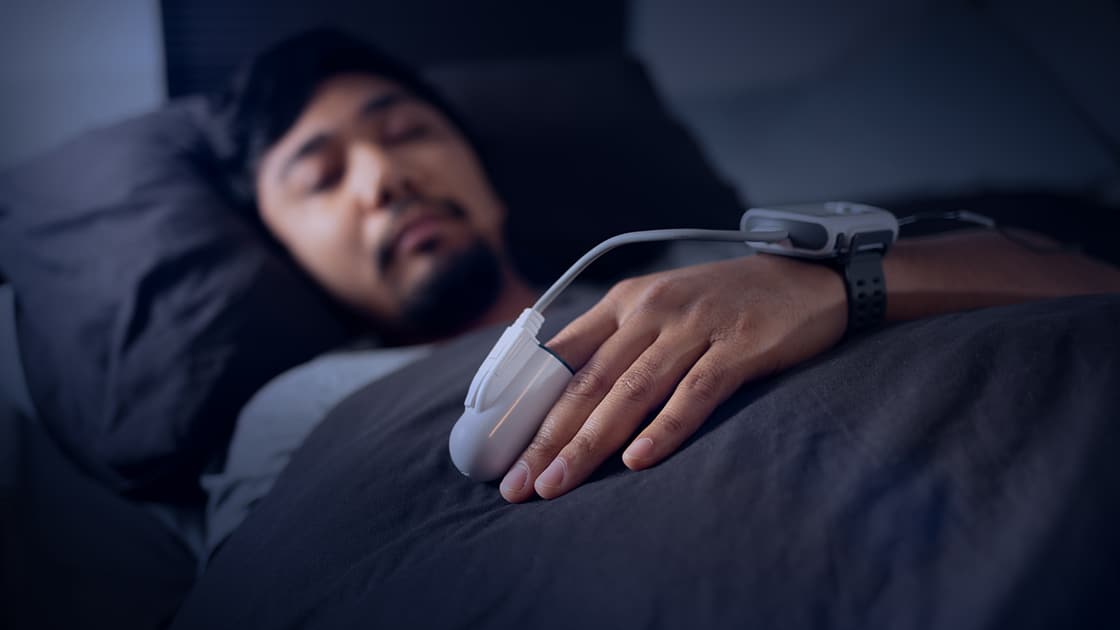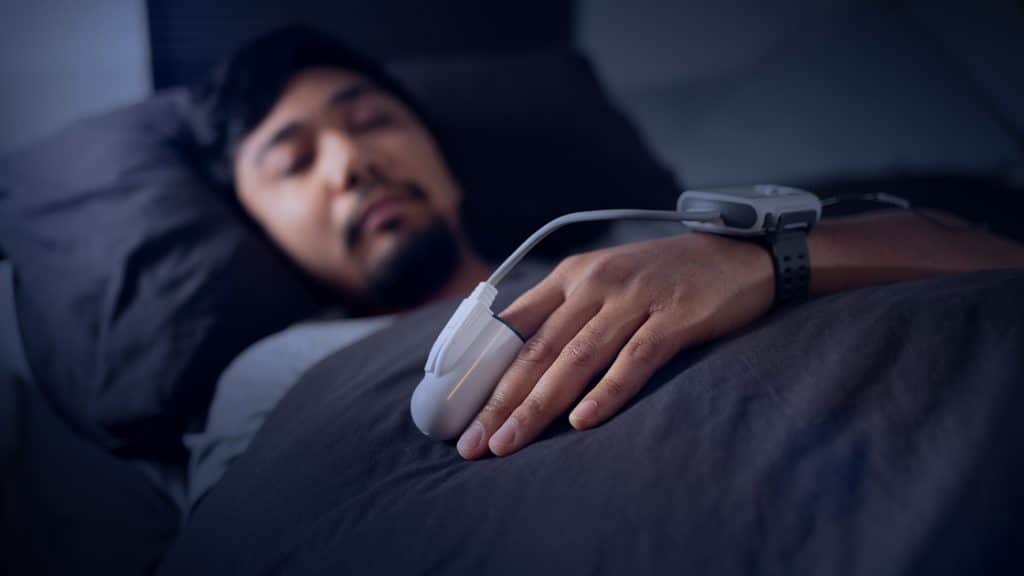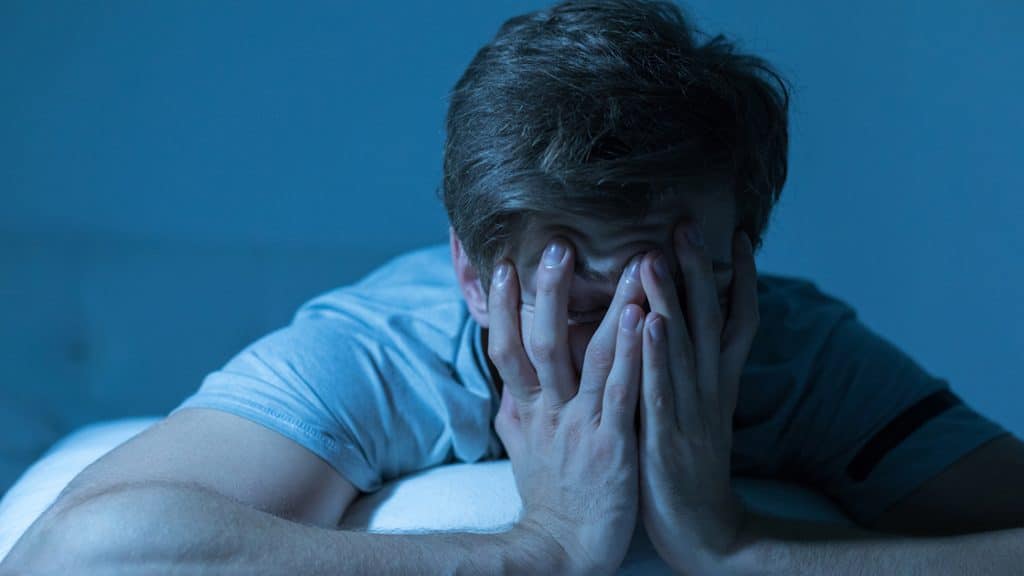
Sleep Study Near Me Lodi NJ
Do you find yourself staring at the ceiling at 3 AM, wondering why sleep feels so elusive? Perhaps you wake up feeling more exhausted than when you went to bed, despite spending eight hours under the covers. If this sounds familiar, you’re not alone. Millions of Americans struggle with sleep disorders that rob them of the restorative rest their bodies desperately need.
The nightly battle with sleep affects far more than just your energy levels. Poor sleep quality can impact every aspect of your life, from your ability to concentrate at work to your relationships with family and friends. What many people don’t realize is that persistent sleep problems often signal underlying sleep disorders that require professional evaluation and treatment.
A comprehensive sleep study represents the most effective path to understanding and resolving your sleep challenges. This non-invasive diagnostic tool provides healthcare professionals in Lodi NJ with detailed insights into what happens to your body during sleep, revealing the root causes of your restless nights. By identifying specific sleep disorders through professional testing, you can finally access targeted treatments that restore your natural sleep patterns and transform your overall quality of life.
Understanding the Signs: When to Consider a Sleep Study
Beyond Simple Tiredness
Everyone experiences occasional tiredness, but chronic sleep problems create a distinct pattern of persistent exhaustion that affects your daily functioning. When fatigue becomes your constant companion despite maintaining regular sleep schedules, it’s time to consider whether an underlying sleep disorder might be the culprit. This type of chronic exhaustion doesn’t improve with weekend catch-up sleep or lifestyle adjustments, and it often worsens over time without proper intervention.
Key Physical Symptoms
Physical symptoms during sleep often provide the clearest indicators that a sleep study may be necessary. Loud, consistent snoring accompanied by observed breathing interruptions can signal obstructive sleep apnea, one of the most common sleep disorders. Additionally, frequent morning headaches, dry mouth upon waking, and night sweats can indicate that your body is struggling to maintain proper oxygen levels throughout the night, requiring professional evaluation to determine the underlying cause.
Daytime Indicators of Poor Sleep
The impact of poor sleep extends well beyond nighttime hours, manifesting in various daytime symptoms that many people don’t immediately connect to sleep disorders. Difficulty concentrating, memory problems, and decreased productivity at work often stem from fragmented sleep patterns. Similarly, increased irritability, mood swings, and the persistent urge to nap during inappropriate times can indicate that your sleep quality is significantly compromised, warranting professional assessment through a comprehensive sleep study.
What is a Sleep Study (Polysomnography)?
A Comprehensive Health Assessment
A sleep study, medically known as polysomnography, represents a comprehensive, non-invasive assessment that monitors multiple bodily functions throughout an entire sleep cycle. This sophisticated diagnostic tool allows healthcare professionals to observe exactly what happens to your body during sleep, providing objective data about your sleep patterns, breathing, and overall sleep quality.
The Science of Sleep Monitoring
During a sleep study, advanced monitoring equipment tracks numerous physiological parameters simultaneously to create a complete picture of your sleep architecture. Brain wave activity through electroencephalography (EEG) reveals your sleep stages and any disruptions in normal sleep patterns. Heart rate monitoring via electrocardiography (ECG) detects cardiac irregularities that may occur during sleep, while specialized sensors measure breathing patterns, airflow, and blood oxygen saturation levels throughout the night.
The Goal of Data Collection
The comprehensive data collected during a sleep study enables sleep specialists to identify specific sleep disorders with remarkable precision. By analyzing the relationships between brain activity, breathing patterns, heart rate, and oxygen levels, healthcare professionals can diagnose conditions such as sleep apnea, narcolepsy, and other sleep-related disorders.
Common Sleep Disorders Diagnosed by Sleep Studies

Obstructive Sleep Apnea (OSA)
Obstructive sleep apnea represents the most frequently diagnosed sleep disorder, affecting millions of Americans who experience repeated episodes of complete or partial airway blockage during sleep. These breathing interruptions occur when the soft tissues in the throat collapse, temporarily preventing airflow and causing blood oxygen levels to drop. complications if left untreated.
Central Sleep Apnea (CSA)
Central sleep apnea differs significantly from obstructive sleep apnea in that the airway remains open, but the brain fails to send appropriate signals to the muscles responsible for breathing. This neurological condition results in periods where breathing effort completely stops, leading to decreased oxygen levels and sleep disruption. Central sleep apnea often occurs in conjunction with certain medical conditions or medications and requires different treatment approaches than obstructive sleep apnea, making accurate diagnosis through sleep studies essential.
Other Sleep-Related Conditions
Sleep studies can also identify various other sleep disorders that significantly impact sleep quality and daytime functioning. Narcolepsy, characterized by excessive daytime sleepiness and sudden sleep attacks, can be diagnosed through specialized sleep studies that measure sleep latency and REM sleep patterns. Restless legs syndrome and periodic limb movement disorder cause involuntary movements during sleep that fragment sleep cycles, both of which can be detected through leg movement sensors during polysomnography.
The In-Lab Sleep Study vs. Home Sleep Apnea Testing
The In-Lab Experience
In-lab sleep studies take place in specialized sleep centers designed to provide a comfortable, hotel-like environment while offering the most comprehensive sleep monitoring available. A trained sleep technologist monitors your sleep throughout the night, ensuring proper sensor function and addressing any concerns that may arise.
The Convenience of Home Sleep Apnea Tests (HSAT)
Home sleep apnea testing offers a convenient alternative for patients who may be candidates for simplified sleep apnea screening. These portable monitoring devices measure essential parameters such as breathing patterns, oxygen levels, and heart rate while you sleep in your own bed.
Determining the Right Test for You
Healthcare professionals consider multiple factors when determining whether an in-lab study or home testing is most appropriate for each patient. Patients with complex medical conditions, suspected central sleep apnea, or symptoms suggesting multiple sleep disorders typically require the comprehensive monitoring available through in-lab studies.
Preparing for Your Sleep Study: What to Expect
Pre-Study Instructions
Proper preparation ensures that your sleep study provides the most accurate results possible. Healthcare providers typically recommend avoiding caffeine after 2 PM on the day of your study, as stimulants can interfere with your natural sleep patterns. Alcohol should also be avoided, as it can affect sleep architecture and breathing patterns.
What to Bring to the Sleep Center
Preparing for your sleep study involves packing items that will help you feel comfortable and maintain your normal bedtime routine. Bring comfortable, loose-fitting sleepwear that allows easy access for sensor placement, along with personal toiletries and any skincare products you typically use.
The Process of Getting Set Up
The sensor application process is conducted by trained sleep technologists who prioritize your comfort and privacy throughout the setup procedure. The various sensors and electrodes are attached using gentle, skin-friendly adhesives that allow for normal movement during sleep. The technologist will explain each step of the process and ensure you understand how the equipment works, addressing any concerns you may have.
Demystifying the Sleep Study Process: A Night at the Lab
A Comfortable and Private Setting
Sleep study rooms are thoughtfully designed to create a comfortable, home-like environment that promotes natural sleep. These private rooms typically feature comfortable beds, adjustable lighting, and climate control to help you feel relaxed and at ease. Many sleep centers design their rooms to resemble hotel accommodations, complete with televisions, comfortable seating areas, and private bathrooms, helping to minimize the clinical atmosphere and encourage normal sleep patterns despite the monitoring equipment.
Continuous, Non-Invasive Monitoring
Throughout the night, trained technologists monitor your sleep from a separate control room, ensuring your privacy while maintaining constant oversight of the monitoring equipment. The sensors are designed to allow normal movement and position changes during sleep, so you can sleep in your preferred positions without concern.
The Morning After
Upon waking, the sleep technologist will carefully remove all sensors and electrodes, using gentle techniques to minimize any discomfort. You’ll have access to bathroom facilities to refresh yourself before leaving the sleep center. The technologist will provide information about when you can expect to receive your results and schedule your follow-up appointment with the sleep specialist.
From Data to Diagnosis: Understanding Your Results

The Role of the Sleep Specialist
A board-certified sleep medicine physician carefully analyzes the comprehensive data collected during your sleep study, examining patterns and relationships between various physiological parameters throughout the night. These specialists have extensive training in sleep disorders and use their expertise to identify subtle abnormalities that may not be apparent to untrained observers.
Key Metrics in Your Report
Your sleep study report will contain several key metrics that help quantify the severity of any sleep disorders identified. The Apnea-Hypopnea Index (AHI) measures the number of breathing interruptions per hour of sleep, with higher numbers indicating more severe sleep apnea. Oxygen saturation levels show how well your blood carries oxygen throughout the night, with significant drops potentially indicating breathing problems.
The Consultation and Diagnosis
During your follow-up consultation, the sleep specialist will thoroughly review your sleep study results, explaining the findings in understandable terms and answering any questions you may have. If a sleep disorder is diagnosed, the physician will discuss the condition’s implications for your health and daily life, along with available treatment options.
The Health Consequences of Untreated Sleep Disorders
Cardiovascular Health Risks
Untreated sleep disorders, particularly sleep apnea, create significant strain on the cardiovascular system through repeated episodes of oxygen deprivation and stress hormone release. Research has established strong connections between untreated sleep apnea and hypertension, with the condition contributing to elevated blood pressure that persists throughout the day.
Impact on Metabolic Health
Sleep disorders significantly disrupt the body’s metabolic processes and hormonal regulation, leading to increased risks for type 2 diabetes and weight gain. Poor sleep quality affects hormones that regulate appetite and glucose metabolism, often resulting in increased cravings for high-calorie foods and reduced insulin sensitivity.
Cognitive and Mental Well-being
The cognitive and psychological impacts of untreated sleep disorders extend far beyond simple tiredness, affecting memory consolidation, concentration, and emotional regulation. Chronic sleep disruption impairs the brain’s ability to process and store information, leading to memory problems and decreased cognitive performance. Additionally, individuals with untreated sleep disorders experience higher rates of depression, anxiety, and mood disorders, as poor sleep quality directly affects neurotransmitter balance and stress hormone production, creating a cycle that can significantly impact mental health and overall quality of life.
Treatment Pathways Following a Diagnosis
Continuous Positive Airway Pressure (CPAP) Therapy
CPAP therapy remains the gold standard treatment for moderate to severe obstructive sleep apnea, working by delivering a continuous stream of pressurized air through a mask to keep the airway open during sleep. Modern CPAP machines feature significant improvements in comfort and usability, including heated humidification, auto-adjusting pressure settings, and quieter operation.
Oral Appliance Therapy
Oral appliance therapy offers an effective alternative treatment option for patients with mild to moderate sleep apnea or those who cannot tolerate CPAP therapy. These custom-fitted dental devices work by repositioning the jaw and tongue to maintain an open airway during sleep, preventing the soft tissue collapse that causes breathing interruptions. Modern oral appliances are designed for comfort and effectiveness, with adjustable features that allow for fine-tuning of the therapeutic position while maintaining patient comfort throughout the night.
Lifestyle Modifications and Other Therapies
Comprehensive sleep apnea treatment often includes lifestyle modifications that can significantly improve treatment outcomes and overall health. Weight management plays a crucial role, as even modest weight loss can reduce the severity of sleep apnea symptoms. Positional therapy helps patients who experience more severe symptoms when sleeping on their backs, while avoiding alcohol and sedatives before bedtime can prevent additional airway relaxation.
Sleep Better Solution: Lodi’s Ally in Restful Nights
Local Expertise
Sleep Better Solution provides comprehensive sleep care services with a focus on personalized, patient-centered treatment approaches that address each individual’s unique sleep challenges. Our experienced team understands that effective sleep disorder treatment requires more than just diagnosing the condition; it involves developing long-term relationships with patients to ensure optimal outcomes and continued sleep wellness.
Modern Facilities
Our state-of-the-art sleep center features comfortable, hotel-like rooms equipped with the latest sleep monitoring technology to ensure accurate diagnosis while maintaining patient comfort. For appropriate candidates, we also offer convenient home sleep testing options that allow patients to undergo sleep apnea screening in the familiar environment of their own homes.
Long-Term Support
Sleep Better Solution is committed to providing ongoing support throughout your sleep health journey, from initial diagnosis through treatment implementation and long-term follow-up care. Our comprehensive approach includes regular monitoring of treatment effectiveness, adjustments to therapy as needed, and continued education to help patients achieve optimal sleep quality.
The Life-Changing Benefits of Treating Sleep Disorders

Restored Energy and Vitality
Effective treatment of sleep disorders often results in dramatic improvements in daytime energy levels and overall vitality within weeks of beginning therapy. Patients frequently report feeling more alert and energetic during the day, with the chronic fatigue that may have plagued them for years finally lifting. This restored energy translates into improved productivity at work, greater enjoyment of daily activities, and the ability to engage more fully in family and social interactions that may have suffered due to persistent tiredness.
Improved Overall Health and Longevity
Treating sleep disorders provides significant long-term health benefits that extend well beyond improved sleep quality. Effective treatment can help normalize blood pressure, reduce cardiovascular disease risk, and improve metabolic function, potentially preventing or helping to manage conditions such as diabetes and obesity.
Enhanced Quality of Life
The quality of life improvements that result from successful sleep disorder treatment often exceed patients’ expectations, positively affecting virtually every aspect of daily life. Improved sleep quality enhances mood stability, reduces irritability, and increases patience, leading to stronger personal and professional relationships. Enhanced cognitive function improves work performance and decision-making abilities, while increased energy levels allow for greater participation in recreational activities and personal interests that contribute to overall life satisfaction and happiness.
Reclaiming Your Sleep, Transforming Your Life
The journey from sleepless nights to restful sleep begins with recognizing that persistent sleep problems deserve professional attention and treatment. A comprehensive sleep study provides the objective data needed to identify specific sleep disorders and develop targeted treatment approaches that address the root causes of your sleep difficulties. This diagnostic process represents a crucial investment in your health that can prevent serious medical complications while dramatically improving your quality of life.
If you’re experiencing symptoms of a sleep disorder, don’t allow another night of poor sleep to compromise your health and well-being. Contact a qualified sleep medicine professional to discuss your symptoms and determine whether a sleep study is appropriate for your situation. Taking this important step toward better sleep health can be the beginning of a transformation that improves every aspect of your daily life, restoring the energy, focus, and vitality that quality sleep provides.
